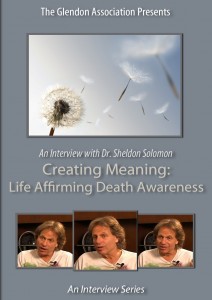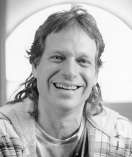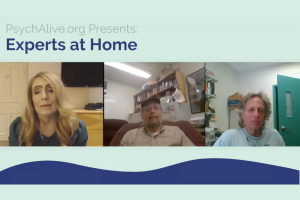Dr. Sheldon Solomon on Human Destructiveness: Exclusive Interview
The following transcript contains part of an exclusive interview with Dr. Lisa Firestone and Dr. Sheldon Solomon.
Dr. Sheldon Solomon on Human Destructiveness
Dr. Sheldon Solomon talks about human destructiveness from a Terror Management Theory perspective.
LF: How do you make sense out of human destructiveness coming from a Terror Management Theory perspective?
SS: Well, I think the Terror Management Theory view is fairly simple and probably incomplete as are any efforts to encapsulate the totality of human affairs. You know, we were taught by people that were our lineages. We were taught by a guy named Jack Brem and he was taught by a guy named Leon Festinger and Festinger was taught by a guy named Kurt Levine or Lewin. And the Lewin guy or Levine, he was famous for the saying that there’s nothing better than or more useful than a good theory. And then there’s a German physicist whose name escapes me who said all theories are wrong. And when I was in graduate school, that’s what, that’s the kind of tension of sorts that we were asked to think about all the time. On the one hand, we were encouraged to think big, But the fact of the matter is, is that the greats in all of the sciences, it’s all about what they call parsimony. You know, how much can you explain with the fewest number of ideas. Because that’s after all what science strives for. And you know, Einstein, E = mc2, that’s a lot of bang for the conceptual buck when you can account for the machinations of the physical universe in a single equation. Darwin, evolution by natural selection. Wow! You know, you’re talking shit, when, in a sentence, you know, you’re accounting for a whole lot. But, but that doesn’t mean that you’re getting everything. And so on the one hand, what you find is that all of the greats, they strive, they’re ambitious and they try to explain a lot with very few ideas. But they’re never so arrogant as to claim that they’re done or that they won’t someday be proven wrong.
Alright, so with that caveat in mind, you know, our view of destructiveness is kind of I would say of an amalgamation of Erich Fromm’s ideas in The Anatomy of Human Destructiveness and Ernest Becker’s ideas. What we get from Fromm is just the notion that people are naturally destructive because we’re alive. And that like it or not, we are all here today because we’re effective killing machines. And, you know, an example that Fromm uses, and it’s an obvious one but I think it’s a good one. And the students in the college, they like it a lot. And I’m always, like, “Who eats meat?” And, you know, some of the students do and they raise their hands. And I’m like, “You’re a fuckin’ serial killer.” You know, the cow wasn’t done with its ass that you ate in the hamburger today. So your lunch was the result of a capital crime. And then you’ll have, like, the vegetarians and they’ll be like, “Yeah, that’s why I stopped eating meat.” And I’m like, “You know, the carrot that you yanked out of the ground, thus insuring its premature termination was also disinclined to die before you ingested it.” And then you have, like my sister, who lived in California for 35 years. She was one of those who was like, “Yeah, that’s why I don’t eat anything until it falls off the tree?” What are those lunatics called? Fruitarians! Yes, but you walked across the lawn in order to get that apple, resulting in a holocaust of former insects that you annihilated on your way. And the point’s a silly one. But I think it’s obvious and that is that even inadvertently, we kill countless things on a daily basis in pursuit of sustaining ourselves. And we need to acknowledge that. And it’s humbling, I think, and troubling.
We also need to note, says Fromm, that there are times when we must, if we like living, defend ourselves, you know. So, he, you know, coming, fleeing Germany from the Nazis and Reinhold Neiber, the theologian, was the same. He’s like, you know, pacifism is all well and good until the Nazis bring the tanks into your town. And, no, you don’t roll over and die. You ought to resist under those conditions. So, I guess one point is just that there’s a natural destructiveness that’s intrinsic to being alive. But, of course, that’s not the destructiveness that starts and perpetuates wars and genocides or just the petty and ugly hatred that pervades the world around us. And this is where Becker’s ideas for us – and they are, they’re not unique to him. I think they come out of the Object Relations tradition. In Becker’s terms, because we’re most familiar, or I am most familiar with his lingo, he has two points fundamentally. One is that we all, in order just to get up in the morning, subscribe to culturally constructed beliefs about the nature of reality. You know, he calls it culture or cultural world views. And, but they’re not, no cultural world view is an absolute representation of reality. And therefore, when you run into somebody who has different beliefs, you are in trouble whether you are aware of it or not. His point very simply is that if you grant the legitimacy of an alternative conception of reality, you’re undermining the confidence with which you subscribe to your own. And once that happens, you’re exposing yourself to the very anxiety that your beliefs were erected to mitigate. And that in turn instigates a host of compensatory reactions to restore belief in your view of the world.
So that, that would be one explanation of, for human destructiveness. Well get to the destruction part momentarily. It’s just that the mere existence of alternative views is fundamentally disquieting. I kind of get that and I think that that’s correct. But the more ominous point that he makes in The Escape from Evil book is based on William James, actually. Where William James talked about the fact that our symbols that we use to make us feel OK are very important and they’re very powerful. But they are, after all, symbols, whereas death is a very real physical event. And James says and I always – I love this little quote. He just says “there is always a panic rumbling beneath the surface of consciousness.” That’s why, by the way, great people are great. Because they have a way of turning a phrase that just captures it – I just love that – a panic rumbling beneath the surface of consciousness. In our lingo, it would be death anxiety that’s repressed and therefore unconscious but because repressed anxiety is psychologically unbearable, we have to dispose of it somehow. And so what we do in psychodynamic terms is we project it on to other people, either groups or individuals and they are designated as the all encompassing repositories of evil that once removed, would render life here on earth as it would be in heaven. And so that’s where the destructive part of it comes in.
Because from Becker’s point of view – and he’s actually getting these ideas from Peter Berger and Thomas Luckman and the social construction of reality – where Berger and Luckman in the 1970’s are saying, “Ok, well, what do we do when we run into people that are different?” You know, and they say, “Well, the first thing we do is disparage them. You know, because they don’t share our beliefs but they’re insignificant specks of ignorant sub-human dust and therefore, their beliefs are no longer as threatening.” And I think that’s an important point, that, and I think whether we like it or not, we’re all prone to doing that. You know, the first thing we do when we run into something very different is to just dismiss it and that defuses the threat. You know, and then, simultaneously we try to get people to get rid of their beliefs and adopt ours instead. There’s your conversion, proselytizing. And, but, when that doesn’t work, it’s just, “ kill those bastards.” And, and therefore prove that our ideas and our gods are superior after all. So our account of destruction is that it is in Becker’s language that ironically, most of the evil in the world is done by people claiming that they’re ridding the world of evil. Which would be funny if it wasn’t true. You know, because it is always the case that right before people do their most dastardly deeds, they are always claiming to be on the side of good and beauty. And , yes, so that would be our account of destruction.
Order a DVD of Dr. Sheldon Solomon’s full interview with PsychAlive, “Creating Meaning“
 In this DVD, Dr. Sheldon Solomon addresses a variety of topics concerning how human beings can create meaningful lives in the face of death. In a lively and candid style, Dr. Solomon discusses the development of Terror Management Theory, the ways in which people form defenses against death anxiety and the concept of life affirming death awareness, arguing that we can “accept the reality of the human condition and parlay that into bringing out the best in us. ” He also addresses the societal effects of death awareness, including the social nature of human beings, the role of education and government, and the elements that make up an ideal society. Ultimately, Dr. Solomon advocates that people treat one another humanely and with a greater emphasis on compassion.
In this DVD, Dr. Sheldon Solomon addresses a variety of topics concerning how human beings can create meaningful lives in the face of death. In a lively and candid style, Dr. Solomon discusses the development of Terror Management Theory, the ways in which people form defenses against death anxiety and the concept of life affirming death awareness, arguing that we can “accept the reality of the human condition and parlay that into bringing out the best in us. ” He also addresses the societal effects of death awareness, including the social nature of human beings, the role of education and government, and the elements that make up an ideal society. Ultimately, Dr. Solomon advocates that people treat one another humanely and with a greater emphasis on compassion.
Read More from Dr. Sheldon Solomon
 Dr. Sheldon Solomon is a psychologist and the Ross Professor for Interdisciplinary Studies at Skidmore College. He is best known for developing Terror Management Theory, along with Jeff Greenberg and Tom Pyszczynski, which is concerned with how humans deal with their own sense of mortality. Dr. Solomon is the author or co-author of more than 100 articles and several books, including In the Wake of 9-11: The Psychology of Terror. He’s been featured in several films and TV documentaries as well as countless radio interviews.
Dr. Sheldon Solomon is a psychologist and the Ross Professor for Interdisciplinary Studies at Skidmore College. He is best known for developing Terror Management Theory, along with Jeff Greenberg and Tom Pyszczynski, which is concerned with how humans deal with their own sense of mortality. Dr. Solomon is the author or co-author of more than 100 articles and several books, including In the Wake of 9-11: The Psychology of Terror. He’s been featured in several films and TV documentaries as well as countless radio interviews.









I wish I could watch this right now but unfortunately it pipes oddly into my headphones, one voice comes through on the right and the other on the left. Later I can try playing it in mono so it won’t have that effect, but I don’t have time right now to make the adjustments necessary to do so. I’m sharing this because I’m not sure anyone knows and it may be a fix that’s needed with the audio recording equipment. Anyway, looking or ward to it!
Thank you for letting us now. We will look into the audio issue.
Brilliant light shown directly at the heart of the epic matter!